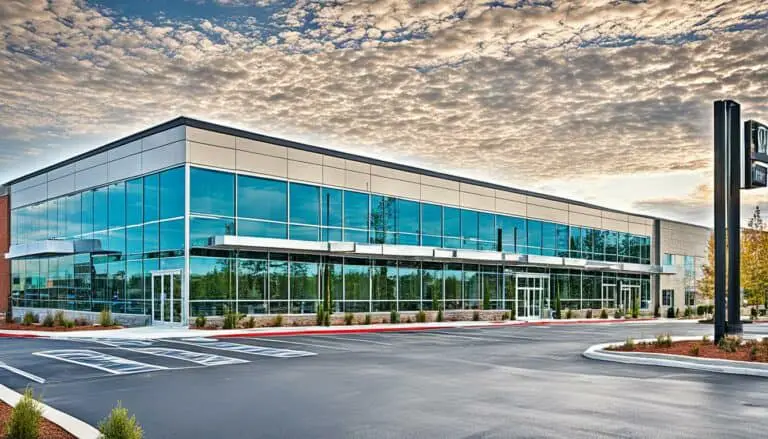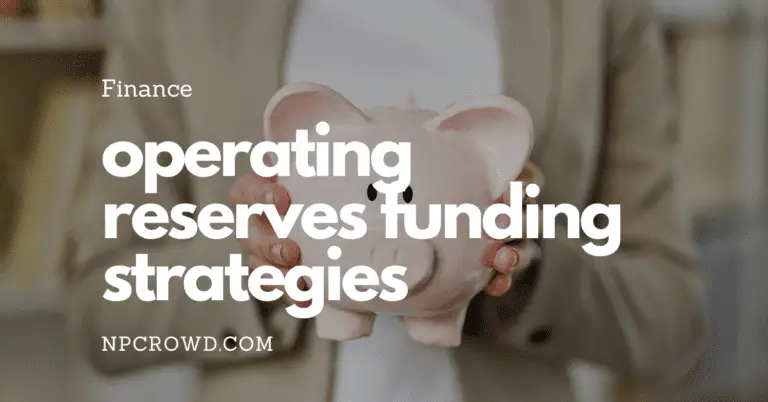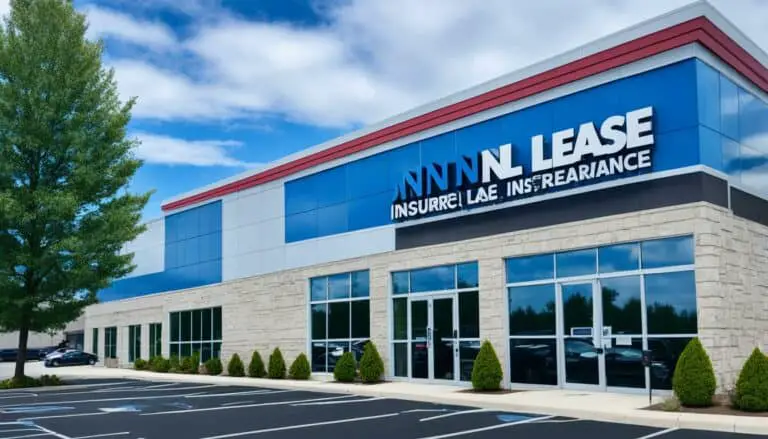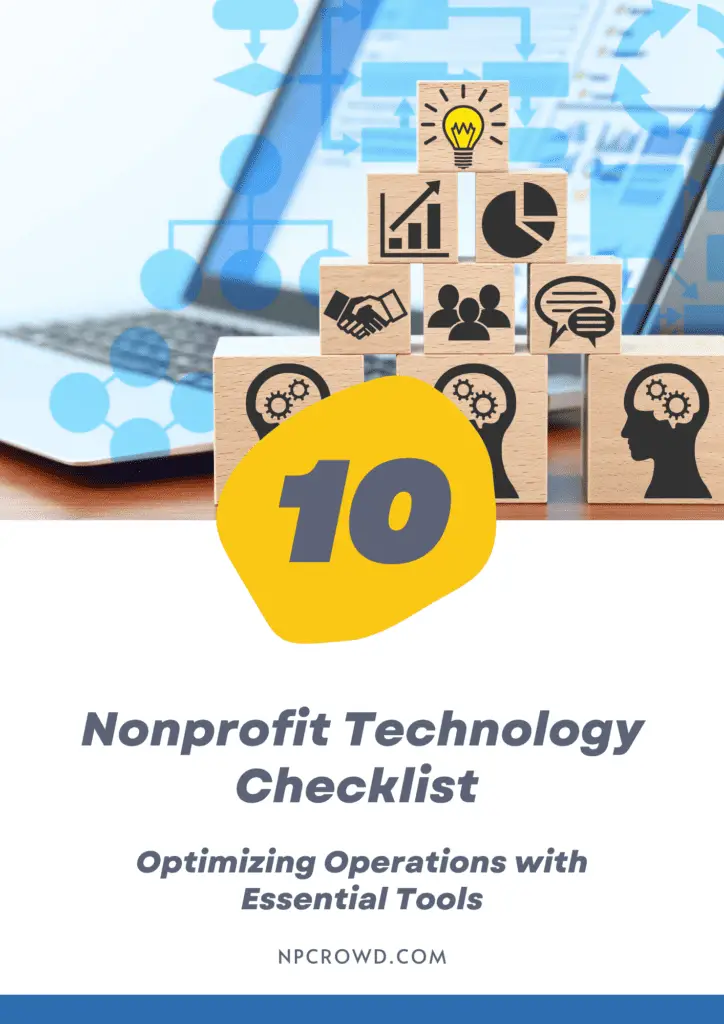NNN Lease Renewals: Strategies for Tenants and Landlords
Disclaimer: This post may contain affiliate links. These links, if used and purchases made, we may earn a small commission. These affiliate programs do not impact the recommendations we make or the resources we refer you to. Our focus is on providing you the best resources for your nonprofit journey.
Are you a tenant or a landlord facing an upcoming NNN lease renewal? The process can be complex and challenging, requiring careful negotiation and strategic planning. Both tenants and landlords have specific goals and considerations that need to be addressed. But how can you navigate this process successfully and secure favorable lease terms?In this article, we will delve into effective strategies for NNN lease renewals that can help tenants and landlords achieve their objectives. We’ll provide insights from real estate professionals and experts in the industry. By understanding key factors, considering the right strategies, and engaging in effective negotiations, you can maximize the chances of a successful lease renewal.
Key Takeaways
- An NNN lease renewal requires careful negotiation and strategy from both tenants and landlords.
- Understanding the different NNN lease structures is crucial before entering into lease renewal discussions.
- Tenants should consider lease terms, concessions, and potential risks and benefits when negotiating a lease renewal.
- Landlords need to focus on tenant retention, market analysis, and financial impacts during lease renewals.
- Effective negotiation tips for both parties can help achieve win-win solutions and favorable outcomes.
Take a few moments to familiarize yourself with the concepts of gross leases, modified gross leases, and triple net leases. This knowledge will serve as a solid foundation as we move forward with exploring strategies for lease renewals in the upcoming sections.

Key Considerations for Tenants
When it comes to negotiating an NNN lease renewal as a tenant, there are several key considerations that can greatly impact the outcome. By carefully analyzing lease terms, assessing the need for concessions, and understanding the potential risks and benefits, tenants can position themselves for favorable lease terms and potentially reduce their costs.
Let’s take a closer look at each of these factors:
Analyzing Lease Terms
Before entering into negotiations, it’s crucial for tenants to thoroughly review the existing lease terms. This includes evaluating the base rent, escalation clauses, common area maintenance (CAM) charges, and any other financial obligations outlined in the lease agreement. Understanding these terms will provide clarity on the financial commitment required during the lease renewal period.
Assessing the Need for Concessions
During lease renewals, tenants may have the opportunity to negotiate concessions from their landlords. These can include rent abatements, tenant improvement allowances, or reductions in CAM charges. It’s essential for tenants to assess their specific needs and determine which concessions would be most beneficial to their business. By clearly articulating and justifying these needs to the landlord, tenants increase the likelihood of reaching a mutually beneficial agreement.
Understanding the Potential Risks and Benefits
Renewing an NNN lease comes with both risks and benefits. Tenants must carefully consider factors such as market conditions, the potential for increased operating costs, and the impact on their long-term business goals. By conducting thorough market research and consulting with industry experts, tenants can make informed decisions that align with their business objectives and financial capabilities.
By evaluating these key considerations and developing a comprehensive negotiation strategy, tenants can confidently engage in lease renewal discussions. It’s essential for tenants to clearly communicate their needs and desired outcomes to the landlord, fostering an open and transparent negotiation process.
Next, we will explore strategies that landlords can employ to enhance tenant retention and ensure successful lease renewals. Stay tuned!
Strategies for Landlords
As a landlord, it’s essential to implement effective strategies to retain tenants and ensure a steady income stream while minimizing vacancies. By employing the right landlord strategies, you can increase the likelihood of successful lease renewals. Here are some key tactics to consider:
1. Offer Lease Concessions
One effective way to incentivize tenants to renew their leases is by offering lease concessions. These concessions can include rent discounts, extended lease terms, or improvements to the property. By providing attractive lease terms, you can demonstrate your commitment to tenant satisfaction and encourage them to stay.
2. Analyze Market Conditions
Staying informed about market conditions is crucial for setting competitive rental rates and retaining tenants. By researching local market trends, you can determine if your current rental rates align with the market value. Adjusting prices accordingly can help attract and retain tenants, ensuring you remain competitive in the market.
3. Assess the Financial Impact
Before negotiating a lease renewal, it’s essential to evaluate the financial impact on your investment property. Consider factors such as inflation, maintenance costs, and overall profitability. By thoroughly analyzing the financial implications, you can make informed decisions during negotiations and achieve a fair and sustainable lease agreement.
4. Understand Tenant Needs
Understanding your tenants’ needs and addressing their concerns is crucial for successful lease renewals. Take the time to communicate with your tenants and listen to their feedback. By demonstrating a willingness to accommodate their needs, you can foster a positive landlord-tenant relationship and increase the likelihood of lease renewals.

5. Provide Excellent Property Management
A well-managed property can significantly impact tenant retention. Ensure that maintenance and repairs are promptly addressed, common areas are well-maintained, and tenant requests are handled efficiently. By providing excellent property management services, you can create a positive living or working environment that encourages tenants to stay long-term.
6. Keep Communication Channels Open
Clear and open communication is key in maintaining positive relationships with your tenants. Regularly check in with your tenants to address any concerns, answer questions, and ensure their needs are met. By fostering transparent communication, you can build trust and loyalty, increasing the likelihood of lease renewals.
| Strategies for Landlords | Benefits |
|---|---|
| Offer lease concessions | – Encourages tenant loyalty – Increases lease renewal rates |
| Analyze market conditions | – Attracts and retains tenants – Ensures competitive rental rates |
| Assess the financial impact | – Achieves a fair and sustainable lease agreement – Maximizes profitability |
| Understand tenant needs | – Fosters positive landlord-tenant relationships – Increases tenant satisfaction and retention |
| Provide excellent property management | – Creates a positive living or working environment – Enhances tenant experience |
| Keep communication channels open | – Builds trust and loyalty – Addresses tenant concerns effectively |
Negotiation Tips for Both Parties
Successful lease renewals often require effective negotiations between tenants and landlords. It’s essential for both parties to strive for win-win solutions that meet their respective objectives. To help you navigate the negotiation process and achieve favorable outcomes, we’ve compiled some practical tips for both tenants and landlords:
1. Open Communication
Effective communication is the foundation of any successful negotiation. Both tenants and landlords should openly express their needs, concerns, and expectations. By fostering open dialogue, you can create a collaborative atmosphere where both parties feel heard and understood.
2. Explore Lease Extension Options
One strategy to consider during lease negotiations is exploring lease extension options. For tenants, this may involve discussing longer lease terms to secure stability and potentially negotiate more favorable terms. Landlords, on the other hand, may want to consider offering lease extensions to maintain occupancy rates and avoid turnover costs.
3. Consider Win-Win Concessions
Concessions play a crucial role in reaching win-win solutions. Tenants can propose concessions such as rent reductions, lease flexibility, or tenant improvement allowances to meet their financial and operational needs. Landlords, in turn, may offer incentives like longer notice periods, rent escalations, or shared maintenance responsibilities to balance their own interests.
4. Research Market Trends and Comparable Properties
Both tenants and landlords should conduct thorough research on market trends and comparable properties in the area. This knowledge provides valuable leverage during negotiations, allowing tenants to justify their desired terms and landlords to establish fair rental values.
5. Seek Professional Advice
Engaging professionals such as real estate agents, attorneys, or lease negotiators can offer valuable expertise and guidance throughout the negotiation process. These professionals can provide insights, analyze lease terms, and advocate for your best interests.
Remember, successful lease renewals are not about one party winning over the other. They are about finding mutually beneficial solutions that address the needs and objectives of both tenants and landlords. By following these negotiation tips, you can enhance your chances of achieving positive outcomes and maintaining strong landlord-tenant relationships.
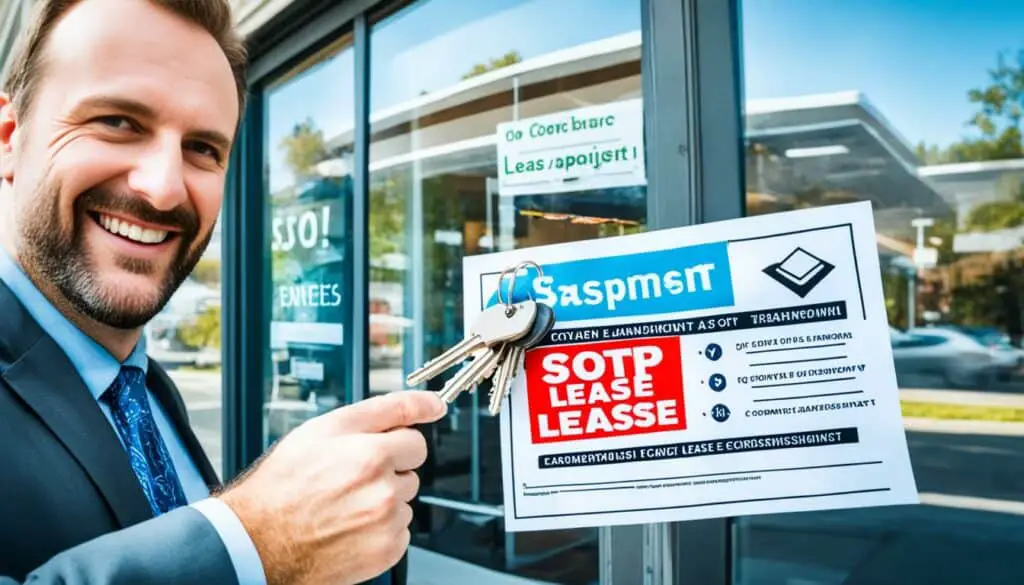
Timing and Preparation
When it comes to lease renewal, timing is everything. It’s crucial for both tenants and landlords to start preparing well in advance to ensure a smooth negotiation process. By being proactive and well-prepared, both parties can maximize their chances of achieving favorable outcomes.
Firstly, let’s discuss the ideal timeline for lease renewals:
- For tenants, it’s recommended to initiate lease renewal discussions with your landlord at least 6-12 months before the current lease expires. This allows sufficient time for negotiations, market analysis, and potential alternative property considerations.
- For landlords, it’s essential to reach out to your tenants with a lease renewal offer at least 6 months in advance. This gives tenants ample time to evaluate the offer, consider their options, and seek professional advice if needed.
Next, let’s highlight the importance of gathering necessary documentation:
Documentation plays a vital role in lease renewal preparation for both tenants and landlords. It provides the necessary evidence to support negotiations, clarify terms, and protect the interests of both parties.
Tenants should gather the following documents:
- Current lease agreement
- Financial statements and proof of income
- Operational records
- Property improvement information
- Market analysis and rental comparisons
Landlords should have the following documentation ready:
- Current lease agreement
- Property financials and operating expenses
- Market analysis and rental comparisons
- Property maintenance and improvement records
- Legal documents and compliance records
Lastly, it’s worth noting the role of leasing brokers in the lease renewal process:
Leasing brokers can provide invaluable assistance by offering market insights, negotiating on behalf of tenants or landlords, and facilitating communication between the parties involved.
By considering the ideal timing, gathering necessary documentation, and leveraging the expertise of leasing brokers, tenants and landlords can approach the lease renewal process with confidence and set the stage for a successful negotiation.
Conclusion
Lease renewals can be complex, but with the right strategies and preparation, both tenants and landlords can navigate the process successfully. By understanding the different lease structures, such as gross leases and triple net leases (NNN leases), parties can make informed decisions during negotiations.
For tenants, considering key factors like lease terms, concessions, and potential risks and benefits is crucial. Developing a negotiation strategy and evaluating these factors carefully can help secure favorable lease terms and potentially reduce costs.
On the other hand, landlords need to focus on tenant retention and analyzing market conditions. Offering lease concessions and addressing tenant needs plays a significant role in securing successful renewals and maintaining a stable income stream.
Effective negotiations are essential for both parties. Open communication, exploring lease extension options, and finding win-win solutions are key to achieving favorable outcomes. Timing and preparation also play a significant role, with proactive and well-prepared approaches increasing the chances of success.
In conclusion, whether you’re a tenant or a landlord, taking the time to understand lease structures, consider key factors, and engage in effective negotiations is crucial for successful NNN lease renewals. By utilizing the strategies and insights discussed in this article, both parties can secure favorable terms and maintain a mutually beneficial landlord-tenant relationship.
FAQ
What are some strategies for negotiating NNN lease renewals?
When negotiating NNN lease renewals, tenants and landlords can employ various strategies. Tenants should carefully analyze lease terms, assess their need for concessions, and understand the potential risks and benefits. Landlords, on the other hand, can offer lease concessions, analyze market conditions, and address tenant needs to increase the likelihood of successful renewals.
What should tenants consider when negotiating an NNN lease renewal?
Tenants should consider several key factors when negotiating an NNN lease renewal. These factors include analyzing lease terms, assessing the need for concessions, and evaluating potential risks and benefits. By carefully evaluating these considerations and developing a negotiation strategy, tenants can secure favorable lease terms and potentially reduce their costs.
What strategies can landlords employ to increase the likelihood of successful lease renewals?
Landlords can employ various strategies to increase the likelihood of successful lease renewals. These strategies may include offering lease concessions, analyzing market conditions, and addressing tenant needs. By understanding tenant requirements and concerns, landlords can foster a mutually beneficial relationship and increase the chances of retaining tenants.
What negotiation tips can benefit both tenants and landlords in the lease renewal process?
Both tenants and landlords should strive for win-win solutions during lease renewal negotiations. It is important to maintain open communication, explore lease extension options, and consider concessions that benefit both parties. By engaging in effective negotiations, tenants and landlords can achieve favorable outcomes and maintain a mutually beneficial relationship.
How can timing and preparation affect the lease renewal process?
Timing and preparation play crucial roles in the lease renewal process. Both tenants and landlords should start preparing well in advance to ensure a smooth negotiation. It is important to understand the ideal timeline for lease renewals, gather necessary documentation, and consider the role of leasing brokers. By being proactive and well-prepared, both parties can maximize their chances of achieving favorable outcomes.
What are some key considerations for tenants when negotiating an NNN lease renewal?
When negotiating an NNN lease renewal, tenants should consider several factors. These factors include analyzing lease terms, assessing the need for concessions, and understanding the potential risks and benefits. By carefully evaluating these considerations and developing a negotiation strategy, tenants can secure favorable lease terms and potentially reduce their costs.
What strategies can landlords employ to retain tenants during lease renewals?
Retaining tenants is crucial for landlords to maintain a stable income stream and minimize vacancies. To increase the likelihood of successful lease renewals, landlords can employ various strategies such as offering lease concessions, analyzing market conditions, and assessing the financial impact of renewals. By understanding tenant needs and addressing concerns, landlords can foster a mutually beneficial relationship and increase their chances of tenant retention.
Source Links
- https://www.linkedin.com/pulse/lease-renewal-negotiations-top-3-risks-landlord-tenants-walseth?trk=pulse-article_more-articles_related-content-card
- https://www.biggerpockets.com/forums/32/topics/812743-negotiating-a-nnn-lease-renewal
- https://erikegelko.com/strategies-for-negotiating-commercial-leases/

